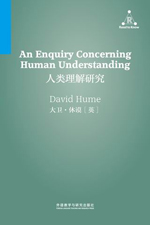人类理解研究
阿豆
The book concentrates on Hume's philosophical thought. He sought to
carry the empirical principle through to its conclusion, thus putting an
end to modern British empiricism. His skepticism contributed to the
transformation of Kant's thought. Various modern Western schools of
empiricist philosophy, such as positivism and logical positivism, have
inherited Hume's epistemological ideas. Book Title Studies in Human
Understanding Introduction This 12-chapter book is centered on the
study of human comprehension, which leads to skeptical and agnostic
conclusions. Chapter 1 is an introduction to the book, expressing the
idea of a "science of human nature"; chapter 2 deals with the
origin of ideas; chapter 3 deals with the three principles of conceptual
association; chapters 4 to 7 deal with the idea of cause and effect;
chapter 8 discusses the problem of freedom and necessity; chapter 9
analyzes the experience of animals; chapters 10 and 11 criticize
theological theories; and chapter 12 sets out the principles of the
principle of skepticism. Hume's time coincided with the maturation of
capitalism and the rapid development of the capitalist economy. The
bourgeoisie vigorously promoted the progress of science in order to
develop production. The rational spirit of science became increasingly
prevalent in intellectual circles. The methods of experimental science
gradually became a model for all sciences to follow. Hume sought to
apply the experimental method to spiritual science, to study the mental
behavior of man, and to establish a "science of man".
Personal Background In the summer of 1734, Hume traveled east to France
and spent three years in seclusion in Paris, Rom and Lafleche, County
Anjou, where he devoted himself to writing philosophy. At the end of
1738, when it was published, it did not receive much attention. Hume
thought that "it was mostly due to the impropriety of the
narrative, and not entirely to the impropriety of the opinion".
Hume then rewrote the first part of Human Nature as Studies in Human
Understanding and published it in Turin. Ideas of the work Hume's
Problem A Study of Human Understanding is Hume's philosophical
masterpiece. In it, Hume sets out his basic philosophical ideas. It
presents the "Humean Problem" in the history of philosophy.
The Humean Problem deals with the problem of "reasoning about facts
and actual existence", especially the problem of causal connection.
This problem, often called the "problem of induction," has two
aspects: one is the question of the reliability of reasoning about facts
and actual situations, and the other is the question of their necessity.
Hume not only thinks that inductive reasoning about facts, realities, is
unreliable, but also that it is not necessary and essential in the
transition from the former to the latter in practice. He argued that the
reason why people think there is a causal connection between certain
things is more due to habit than to conclusions reached through reasoning.



 京公网安备 11010802032529号
京公网安备 11010802032529号